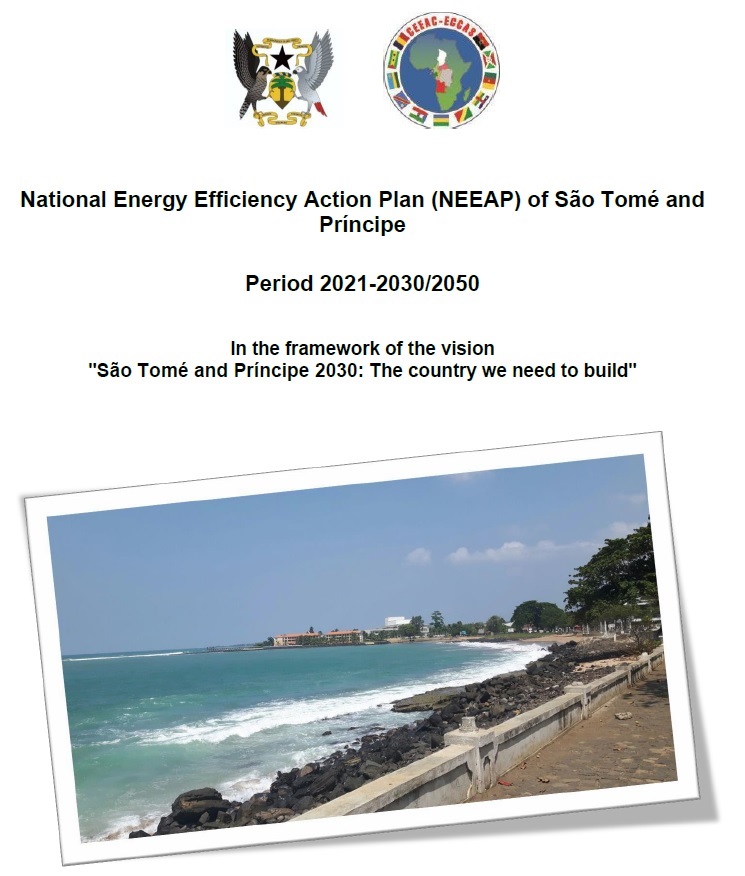
The sustainable industrial and socio-economic development of São Tomé and Príncipe (STP) is heavily dependent on reforming the energy sector and transitioning from an almost complete reliance on fossil fuels to renewable energy (RE) coupled with energy efficiency (EE). However, introducing RE and EE products and services into the market is hampered by a wide range of demand-side and supply-side barriers, which need to be addressed simultaneously.
To address the existing barriers, the STP Government, with the support of the United Nations Industrial Development Organization (UNIDO), has developed the National Renewable Energy Action Plan (NREAP) and the National Energy Efficiency Action Plan (NEEAP) under the project: “Strategic program to promote renewable energy and energy efficiency investments in the electricity sector.” Both documents are now available in English and Portuguese.
These were prepared during 2020 and 2021 under the leadership of the General Directorate of Natural Resources and Energy (DGRNE) of the Ministry of Infrastructure and Natural Resources (MIRN) and by the National Sustainable Energy Platform (PNES). The targets described in the NEEAP and the NREAP were validated by the STP Government through a participatory process led by PNES/DGRNE, involving the exchange of opinions and information, a series of meetings and discussions with PNES/DGRNE, and revisions of the draft plans by PNES/DGRNE and UNIDO. The process was coordinated with the United Nations Development Program (UNDP), the World Bank (WB), the African Development Bank (AfDB) and others.
The NREAP and NEEAP provide the Government with practical guidance on how to make the energy transition a reality by 2030 and 2050. Based on energy modeling using Low Emissions Analysis Platform (LEAP) software, the NREAP and NEEAP propose a low-carbon scenario that will significantly reduce the country’s energy costs and greenhouse gas (GHG) emissions. Energy transition is a prerequisite for the achievement of important national, regional and global policy goals.
The documents are also an important contributions to the regional energy and climate committments of the Economic Community of Central African States (ECCAS), which has recently adopted the estabishment of the Central African Centre for Renewable Energy and Energy Efficiency (CEREEAC) in Luanda, Angola.
Further information is available here: National Renewable Energy Action Plan (NREAP) and the National Energy Efficiency Action Plan (NEEAP)